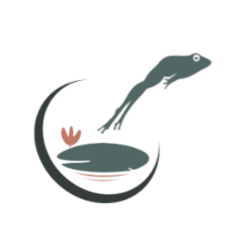How Busyness becomes Burnout
Being busy makes us feel good. But it’s also burning us out.
We know we want to find more time to relax and disconnect at the end of the day, actually doing that is another story.
This is thanks to a behavioral phenomenon called tunneling, a psychological state, typical of people concentrating on a demanding task or operating under conditions of stress, in which a single, narrowly defined category of information is attended to and processed. Here’s how it works; when we’re busy running around, answering emails, putting out fires, and racing to back-to-back meetings, time becomes much scarcer. To deal with that scarcity, our brains effectively put on blinders.
Suddenly, we’re not able to look at the big picture and instead can only concentrate on the most immediate (often low-priority) tasks in front of us. (Research has even found that we lose 13 IQ points when we’re in a tunneling state!)
However, when we pop our heads above water at the end of the day, we realize that we’ve spent barely any time on the work that really matters.
In one study published in the Harvard Business Review, researchers found that at most companies, employees spend 80% of their day on this busy work. In the end, this leaves “employees little time for all the critical work they must complete on their own.”
A person can quickly become overwhelmed by high-priority tasks that are not completed. When we’re too busy to complete our work during work, we take it home with us. Even worse, we don’t see the problem in that.
As Brigid Schulte, author of Overwhelmed: Work, Love and Play When No One Has the Time, writes:
“Unlike a century ago, when Americans showed their status in leisure time, busyness has become the new badge of honor.”
This makes us feel important and valuable. When someone asks us how we are doing our reply is “crazy busy”.
Without intervention, we fall back into the same habit day after day and our busyness compounds until we hit burnout.
What’s the opposite of busyness?
So if busyness is so bad, what’s the alternative? Laziness? Apathy? As we said earlier, busyness isn’t just the absence of time. It’s also the absence of choice
For years, researchers have proven the positive impact of activities that are in stark contrast to busyness. Here’s just a few:
• Boredom and daydreaming: Research shows that being bored or idle activates a wider area of the brain and helps improve creative thinking.
• Deliberate rest: Engaging in activities you enjoy outside of work (like hobbies) is one of the most common traits among highly successful artists, entrepreneurs, and executives.
• Flow: One study found that executives able to focus deeply on a single task were 500% more productive than when bouncing between tasks.
• Socializing: In one study, people who engaged in social interaction showed higher levels of cognitive performance immediately afterward.
• Disconnecting from work: Research has found that people able to disconnect from work have less work-related fatigue, lower rates of procrastination, and better mental and physical health.
Raise your awareness into tunneling and how you “make yourself busy” Notice your language, do you like to say you are busy? Do you feel judged and criticized if you say you are relaxing? We can’t change our behavior until we notice it. Just notice how many times this is unnecessary and how many times a week you are experiencing this behavior.
Stay tuned for ways to reduce your busyness in our next segment.
Don’t forget to like and follow us on

